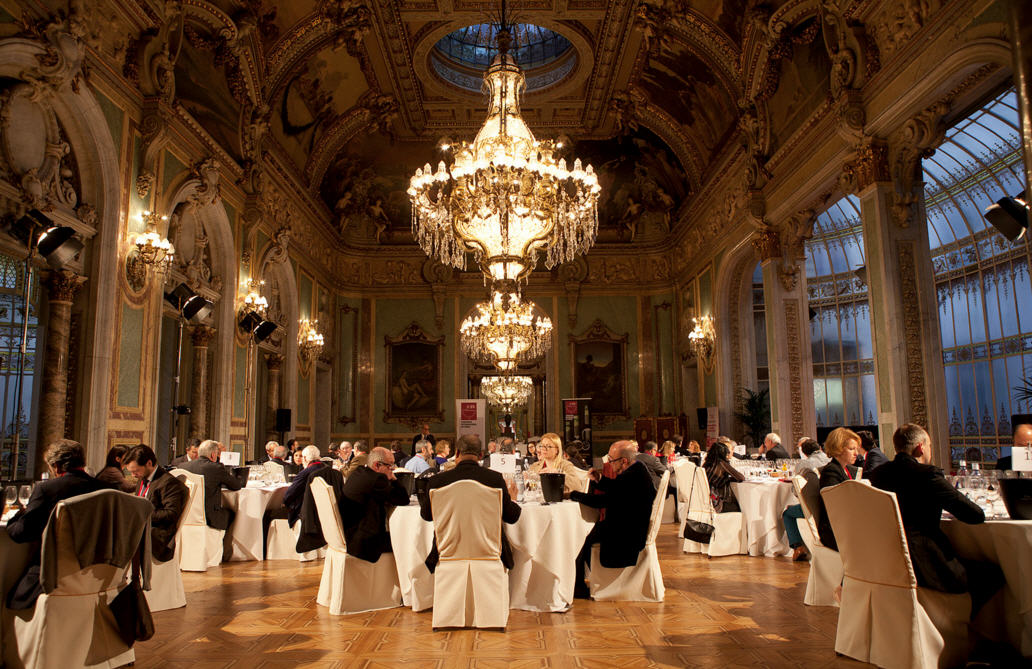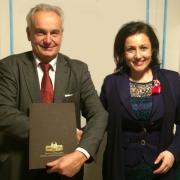
After recalling the recent developments in Bulgarian viticulture and indicating the strategic geographical positioning of Bulgaria, Ms Taneva assured Jean-Marie Aurand of the support of the Ministry and of the National Vine and Wine Chamber in the organisation of the OIV Congress and General Assembly.
The Director General thanked Ms Taneva for this proposal and specified that it would be submitted to the Executive Committee on 16 April so that a decision may be taken.
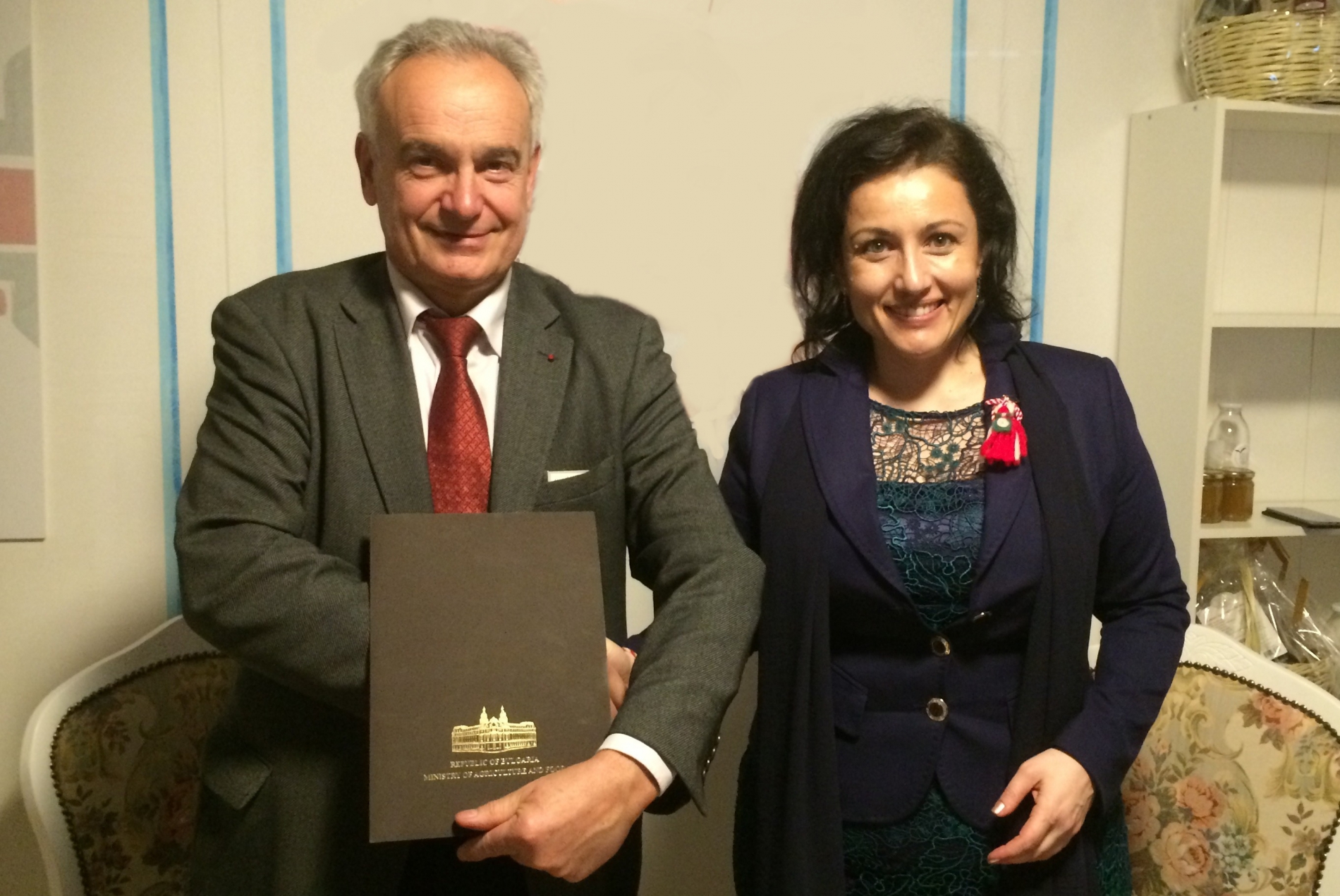
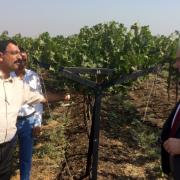
During this visit, which was very well organised by the Indian Ministry of External Affairs, Jean-Marie Aurand met in Delhi with the heads of the different relevant ministerial departments and institutions: the Ministry of External Affairs, Ministry of Agriculture, Ministry of Food Processing Industries and the Ministry of Commerce.
The Director General presented the different activities of the OIV and expressed a desire that the participation of Indian experts in the various work projects of the OIV be strengthened.
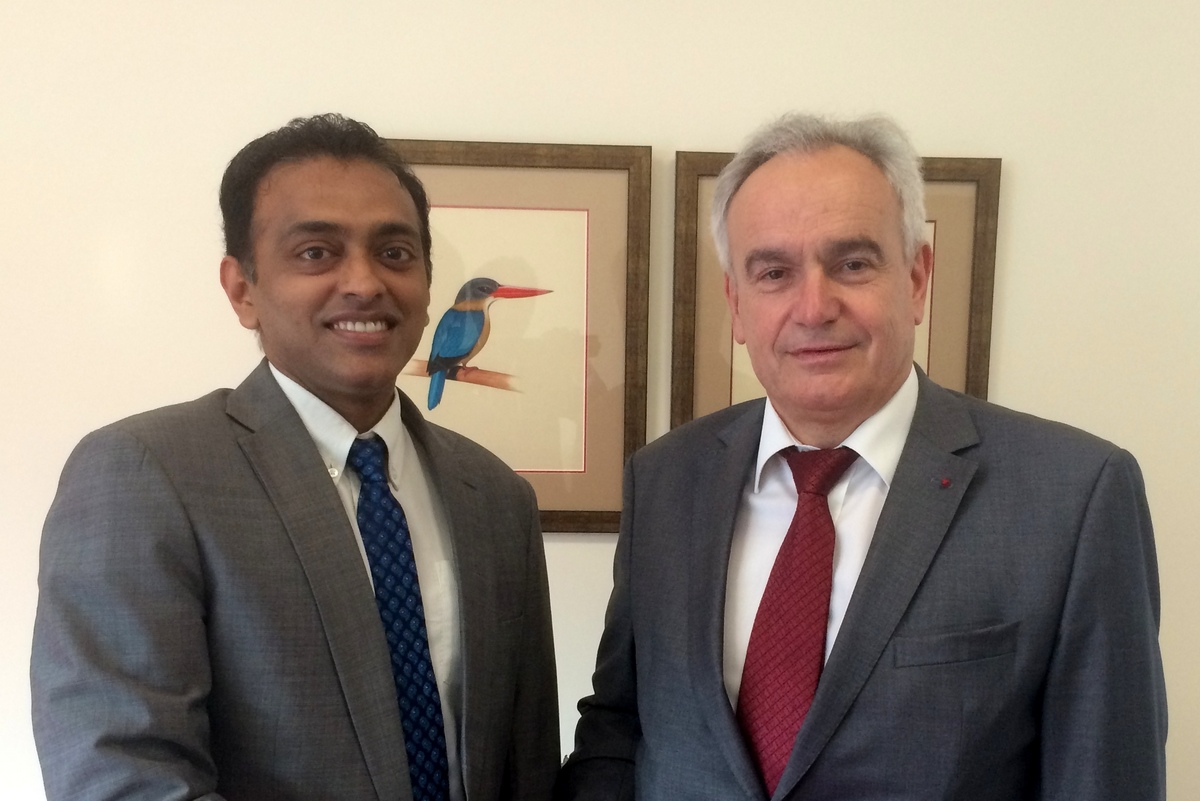
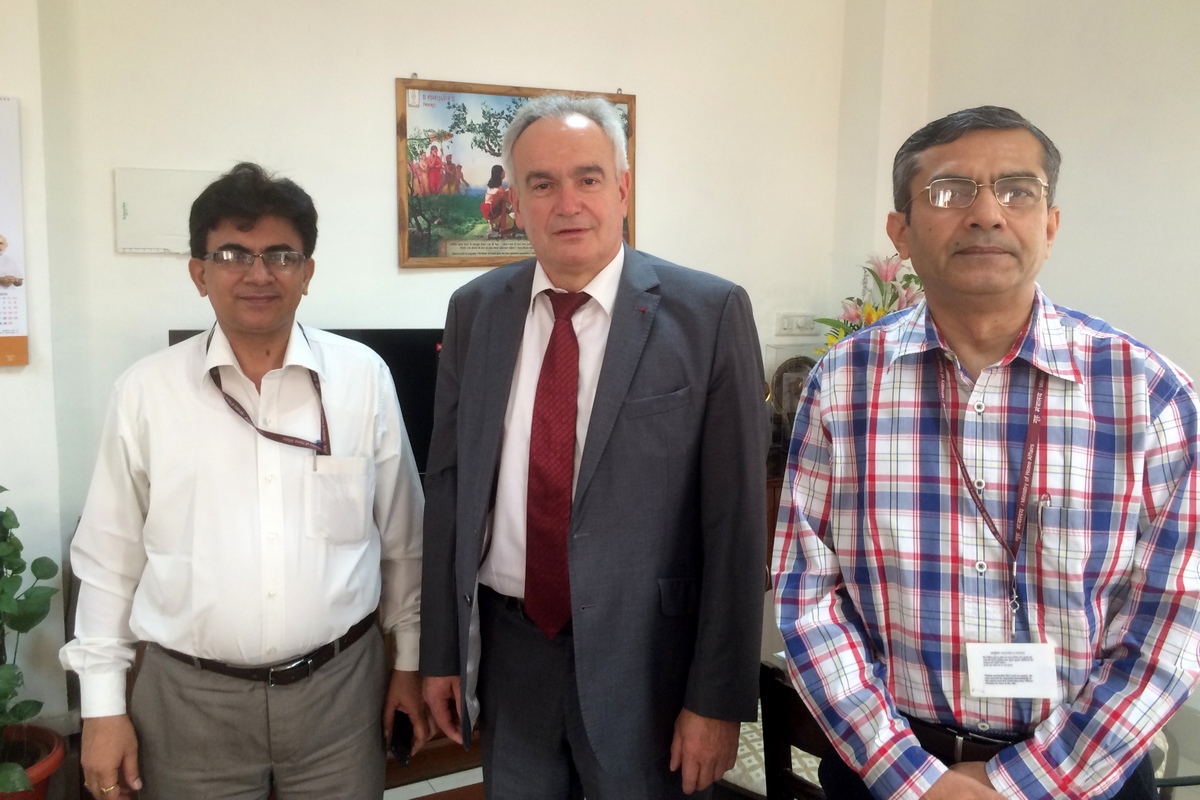
This desire was largely shared by the diverse representatives within a context in which India declared its ambitions with regard to development of the vitivinicultural sector, not only for the production of table grapes and dried grapes, but also for wine.
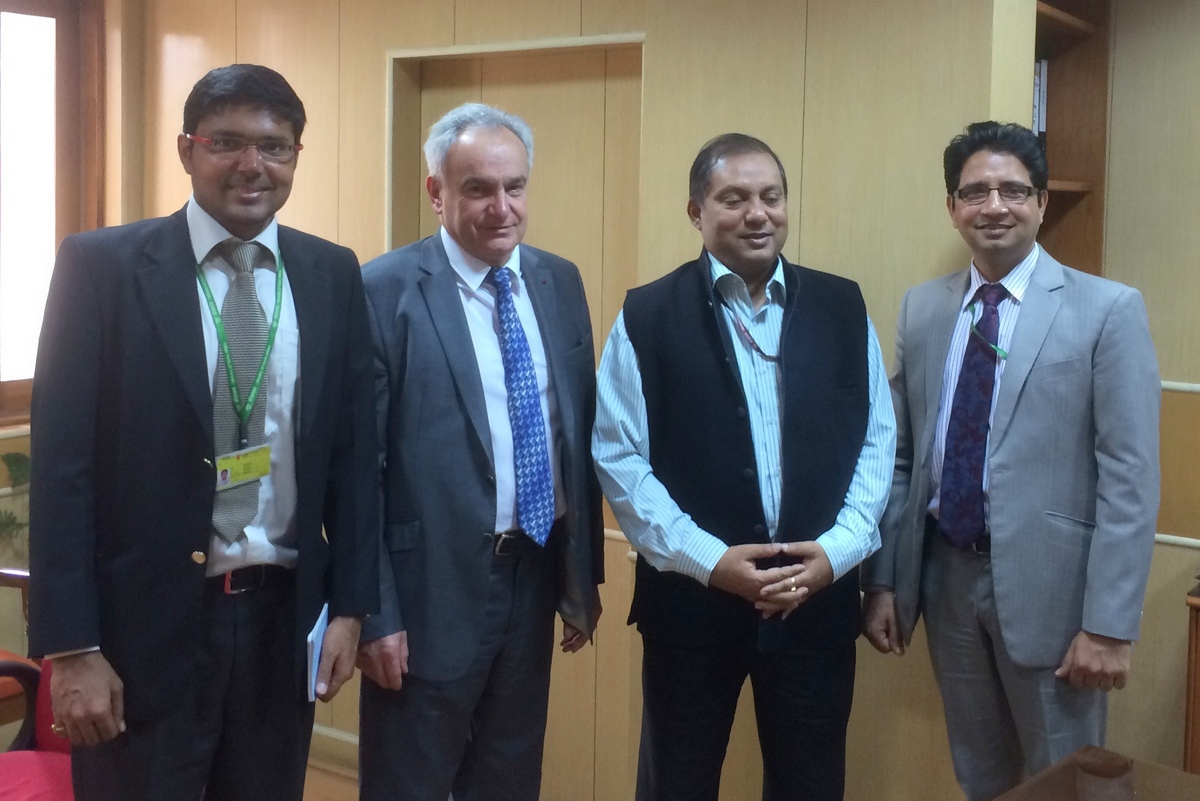
During a meeting with the Chairperson of the Food Safety and Standards Authority, Jean-Marie Aurand stressed the importance attached to the international harmonisation of standards and oenological practices in order to improve conditions for the production and marketing of wines. The action of the OIV goes to the heart of these concerns, particularly through the International Code of Oenological Practices, upon which numerous national and international regulations are based.
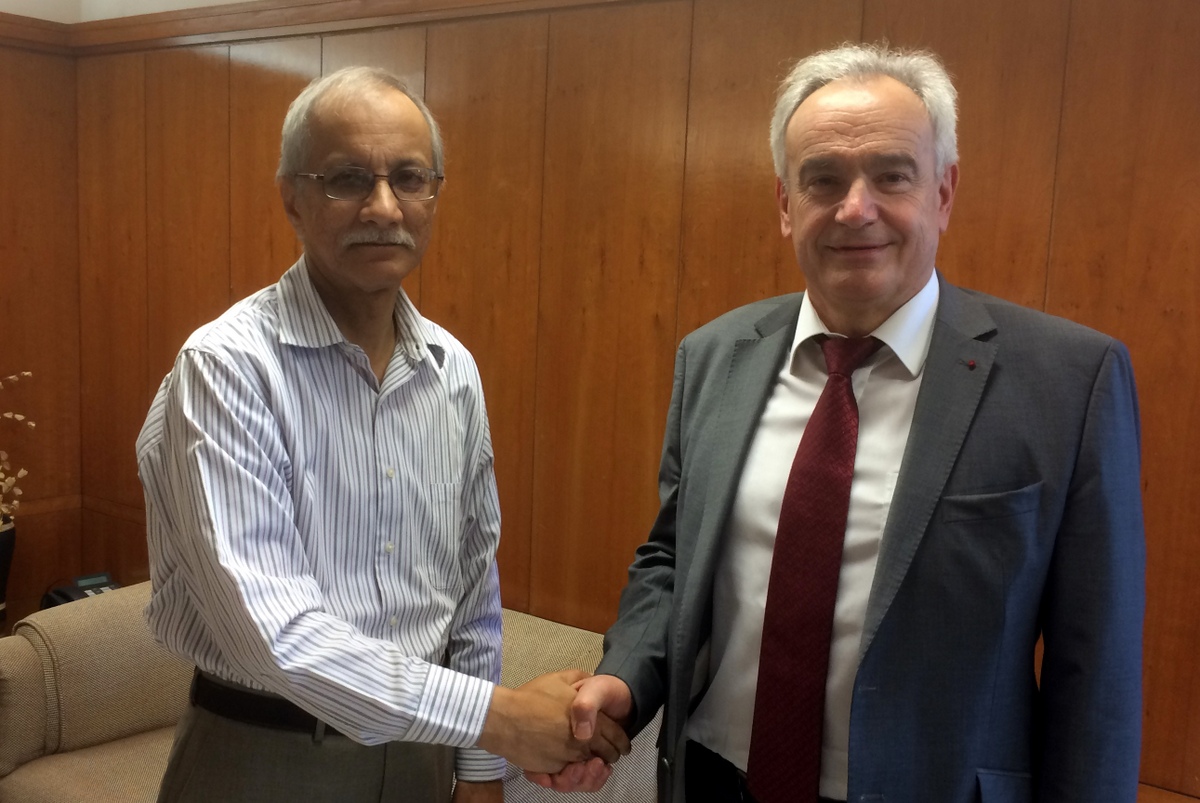
The contacts made in Delhi were followed by a meeting with the Director of the National Research Centre for Grapes in Pune, another with the representatives of the All India Wine Producers Association and a visit to the vineyards of the Sula group in Nashik – the leading company in the national vitivinicultural sector.
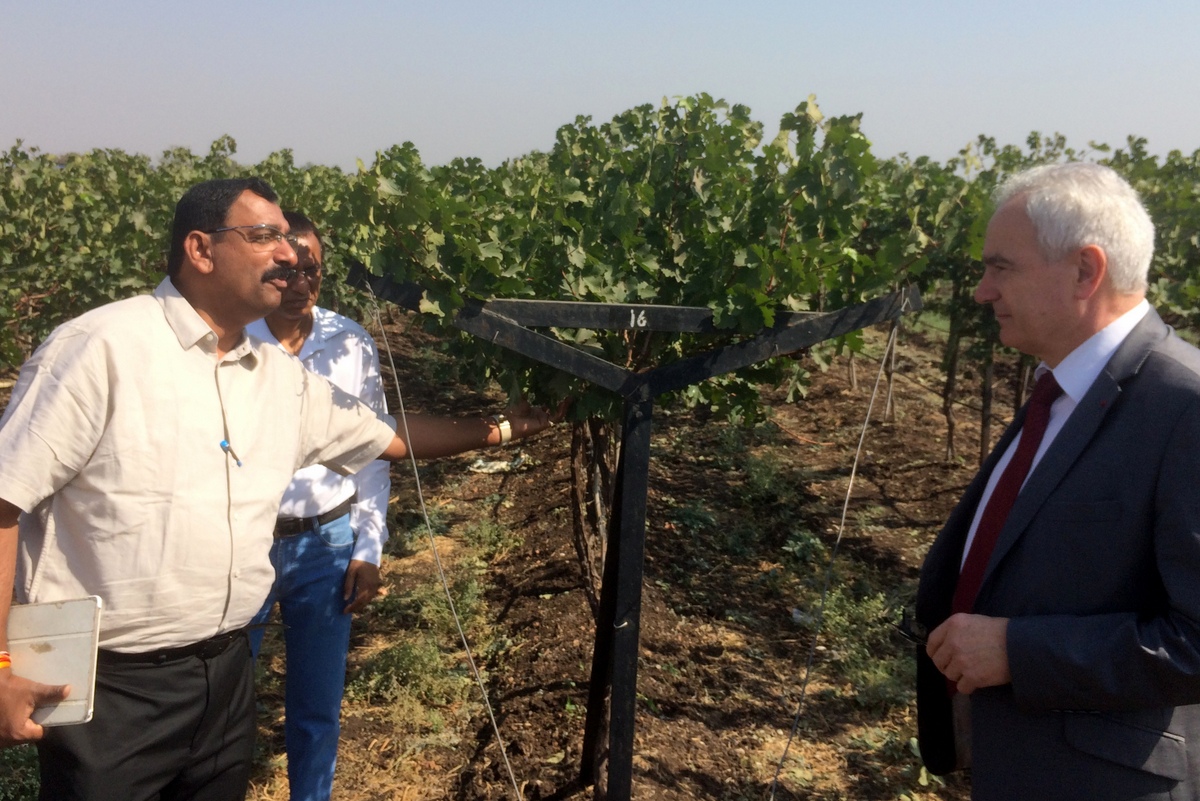
India has a vineyard surface area of 120,000 ha, 90% of which is dedicated to the production of table grapes and dried grapes. Globally, India is one of the top five producers of table grapes, which it exports mainly to Western markets and to the Middle East. This counter seasonality of this production greatly adds to its value.
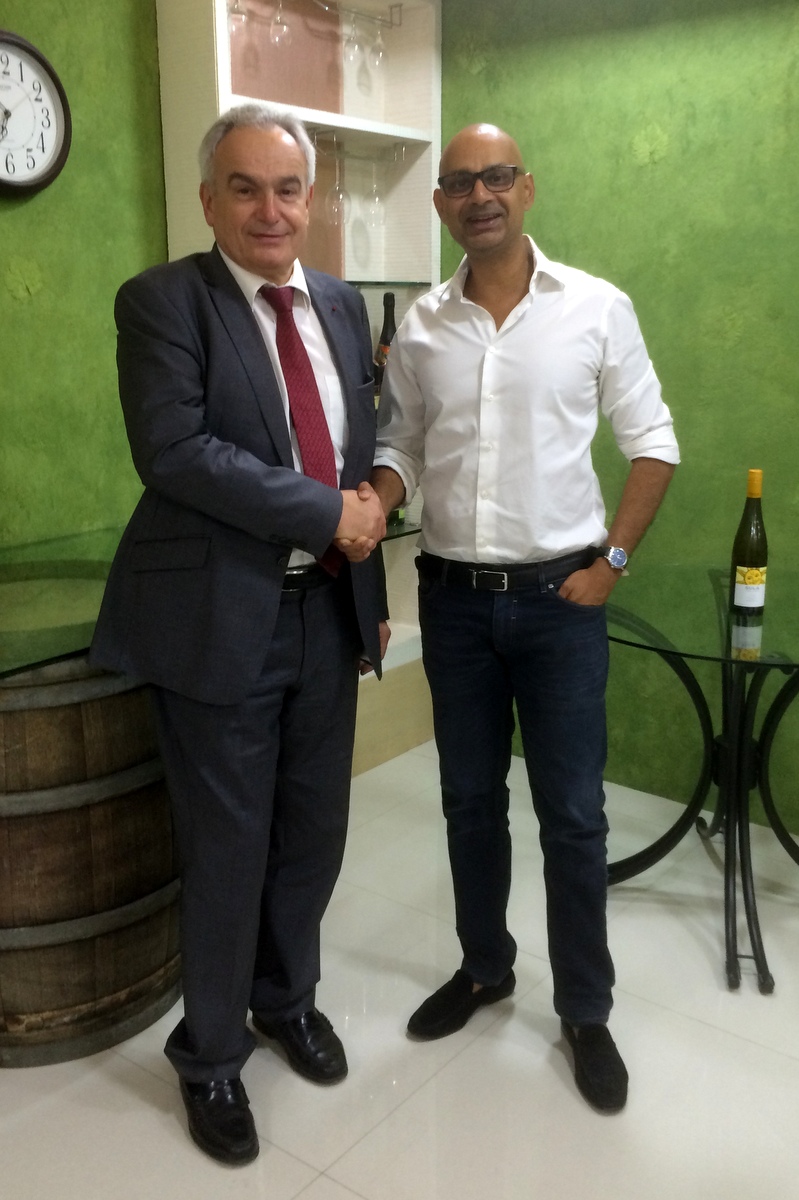
Wine production is steadily developing, driven by a growth in consumption. It reached 175,000 hL in 2014, having doubled in 10 years.
Consumption increased tenfold, with a significant rise since 2007 (from 19,000 hL in 2007 to 190,000 hL in 2014).
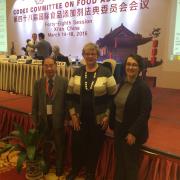
For this session, OIV President Prof. Dr. Monika Christmann led the OIV delegation, which also comprised the OIV Scientific Coordinator, Dr Jean-Claude Ruf.
Among the various items on the agenda, one particular point concerned food additives and the applicable provisions in food category 14.2.3 (Grape wines) and its sub-categories.
For grape wine, which forms part of Annex 3, the additives that are approved for use in the “Grape wines” category and its sub-categories should be evaluated on a case-by-case basis.
In 2015, the Committee agreed to establish an electronic working group to study the reasons for the gap between members in favour of listing additives with numerical maximum limits versus Good Manufacturing Practices (GMP), with the purpose of proposing a common approach. Four issues of concern regarding the use of additives in grape wines were defined: wine identity, wine stability, the global applicability of limits and innovation in the wine sector.
With the aim of reaching an agreement, a common approach was proposed to set limitations for wine additives as GMP, while making reference to internationally recognised bodies with expertise in establishing GMP for these additives. However, although many members proposed referring to the OIV, no consensus was found in this regard.
After long discussions and in the absence of an agreement, the Committee approved the recommendation to establish an electronic working group co-chaired by the European Union and Australia. The purpose of this group will be to develop a discussion paper for the next session containing the various recommendations and analyses vis-à-vis possible amendments to the Codex General Standard for Food Additives (GSFA) for the “Grape wines” category.
At the same time as these discussions, the President of the OIV developed contacts with the representatives of numerous delegations, as well as with those of the FAO and of the JECFA, and with the Secretariat of the Codex Alimentarius.
[EN] OIV Comments on grape wine issue - CRD 19
[EN] OIV Statement in session - CRD 34
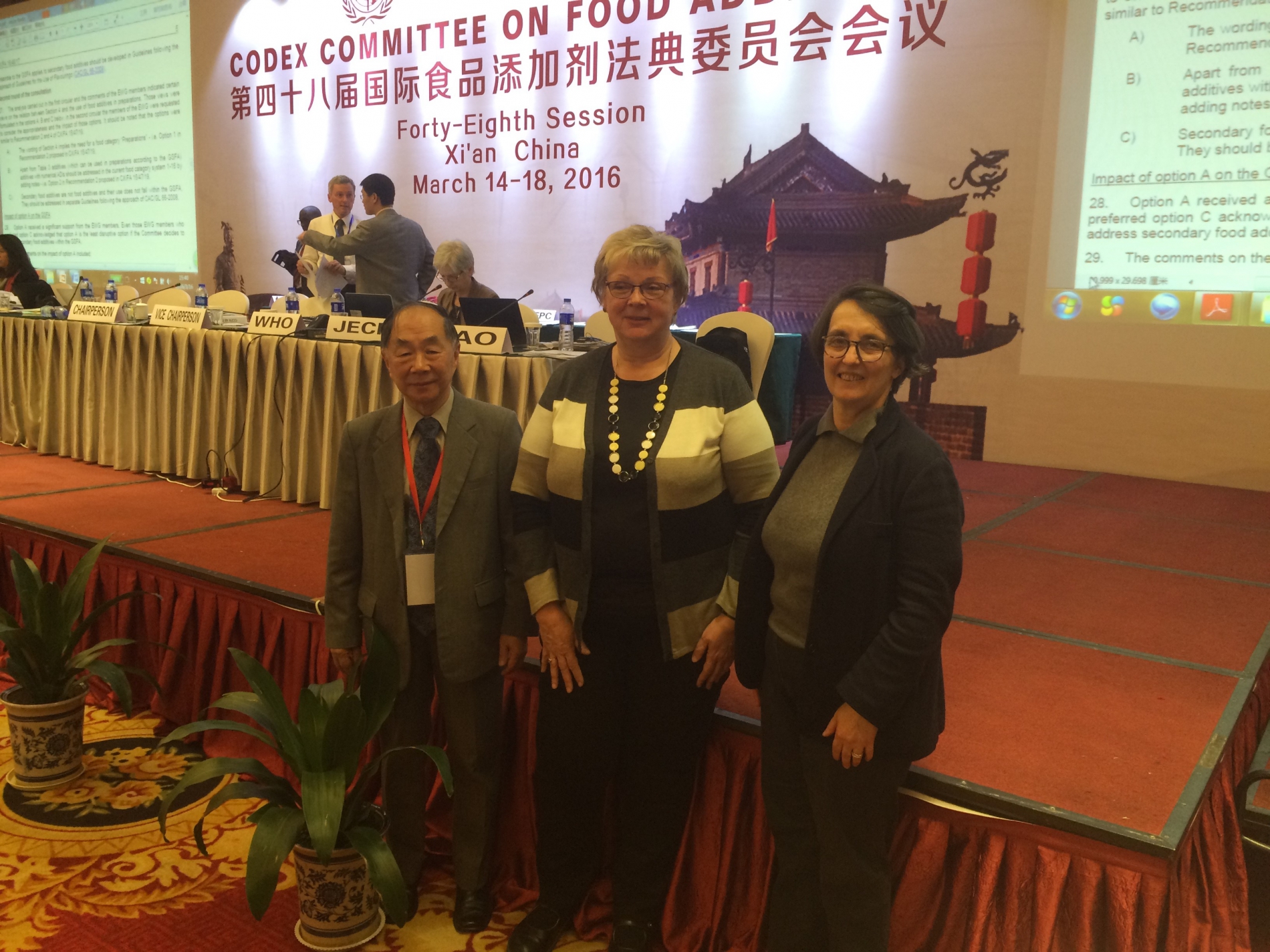
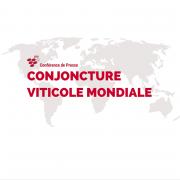
To attend this press conference, journalists are kindly asked to send an email with their name and their professional contact details to press@oiv.int.
Date: Monday 18 April 2016
Time: 11:00 am
Location: International Organisation of Vine and Wine, (OIV), 18 Rue d'Aguesseau, Paris 75008 - Metro station Madeleine or Concorde [see map]
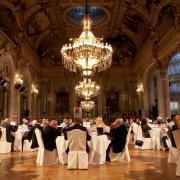
Placed under the patronage of the OIV, this international competition brought together 1854 wines (20% more than in 2015) from 21 countries.
The Director General of the International Organisation of Vine and Wine, Jean-Marie Aurand, praised its success.
Assessed by independent, experienced judges in accordance with the international standards set by the OIV, the wines are selected with every assurance of diligence and transparency.
In the same way as other international wine competitions placed under the patronage of the OIV, Bacchus contributes to awareness of the diversity of wines in the world. It gives producers the opportunity to compete in an increasingly globalised world. More generally, it helps to promote the image and culture of wine.
